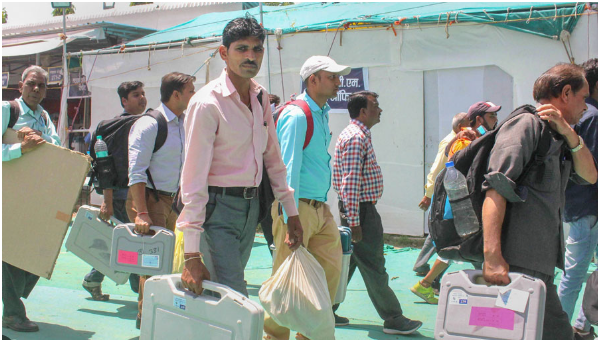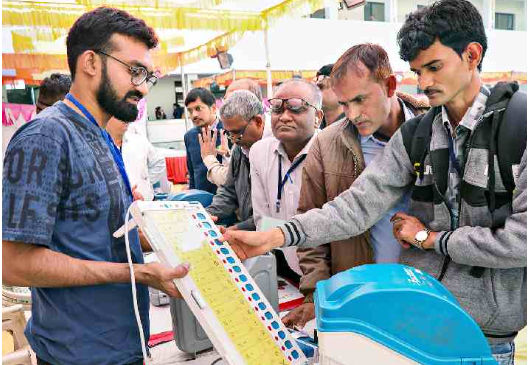Delhi Resident Welfare Associations Present Bold Charter of Demands for Lok Sabha Polls
Delhi Resident Welfare Associations Present Vital Demands for Lok Sabha Polls
The demands, put together by the United RWAs Joint Action (Urja), an umbrella organization representing 2,500 RWAs, were unveiled on Monday. These demands encompass a wide spectrum of issues aimed at fostering sustainable development, combating air pollution through stricter laws, ensuring transparent utilization of public funds, promoting increased public engagement, and establishing a more proactive feedback mechanism. They form part of a comprehensive set of 24 demands presented by a coalition of Delhi’s resident welfare associations (RWAs) to political parties ahead of the upcoming general elections, with the overarching goal of creating a “breathable, livable” Capital.
In a display of civic engagement and proactive citizenship, Resident Welfare Associations (RWAs) across Delhi have come together to present a comprehensive charter of demands ahead of the upcoming Lok Sabha polls. This collective initiative, spearheaded by concerned citizens and community leaders, aims to address key issues affecting the lives of residents and advocate for meaningful change at the national level.
The RWAs, which serve as the grassroots representatives of local communities, have played a crucial role in articulating the concerns and aspirations of Delhi’s residents. Through extensive consultations and deliberations, they have identified a range of pressing issues that require urgent attention from policymakers and elected representatives.

One of the primary demands outlined in the charter is the need for improved infrastructure and basic amenities in residential areas. From better road connectivity and street lighting to reliable water supply and waste management systems, residents are calling for investments in infrastructure development to enhance the quality of life in Delhi.
Furthermore, the RWAs are advocating for measures to address the city’s air pollution crisis, which poses serious health risks to residents and contributes to environmental degradation. They are urging political leaders to prioritize initiatives aimed at curbing pollution levels, promoting sustainable transportation options, and accelerating the transition to clean energy sources.
Education and healthcare emerge as other critical areas of concern highlighted in the charter of demands. Residents are calling for increased investment in public schools and healthcare facilities to ensure access to quality education and medical services for all citizens, regardless of their socio-economic background.
Additionally, the RWAs are emphasizing the importance of effective governance and transparency in decision-making processes. They are calling for greater accountability from elected representatives and public officials, as well as mechanisms to ensure citizen participation in policy formulation and implementation.
The timing of this initiative, just ahead of the Lok Sabha polls, underscores the importance of citizen engagement in the democratic process. By presenting a unified voice and advocating for their collective interests, Delhi’s RWAs are sending a powerful message to political parties and candidates vying for elected office.
Political analysts view the RWAs’ charter of demands as a significant development in the lead-up to the elections, highlighting the growing influence of civil society organizations in shaping the political agenda. They note that RWAs, with their grassroots connections and community networks, have the potential to mobilize voters and influence electoral outcomes in key constituencies.
In response to the RWAs’ demands, political leaders and candidates have expressed their commitment to addressing the concerns raised by residents. Many have pledged to incorporate these issues into their election manifestos and prioritize them if elected to office.
As Delhi gears up for the Lok Sabha polls, the RWAs’ charter of demands serves as a timely reminder of the power of grassroots activism and citizen engagement in driving positive change. By working together and holding elected representatives accountable, residents are paving the way for a more inclusive and responsive democracy.
In conclusion, Delhi’s RWAs are taking proactive steps to ensure that their voices are heard and their concerns are addressed in the lead-up to the Lok Sabha polls. Through their collective advocacy efforts, they are striving to create a better future for themselves and future generations, and their actions serve as a beacon of hope for participatory democracy in India.
For the latest updates-click here.
